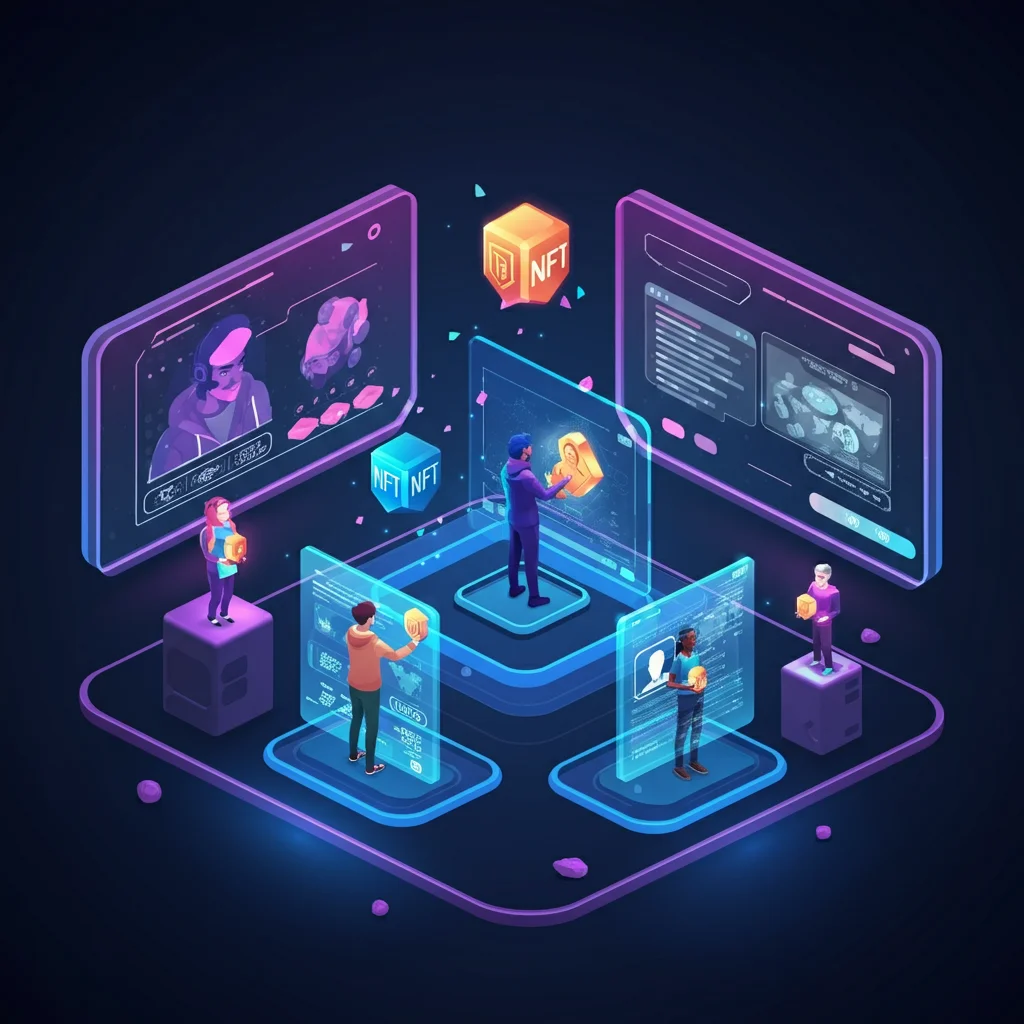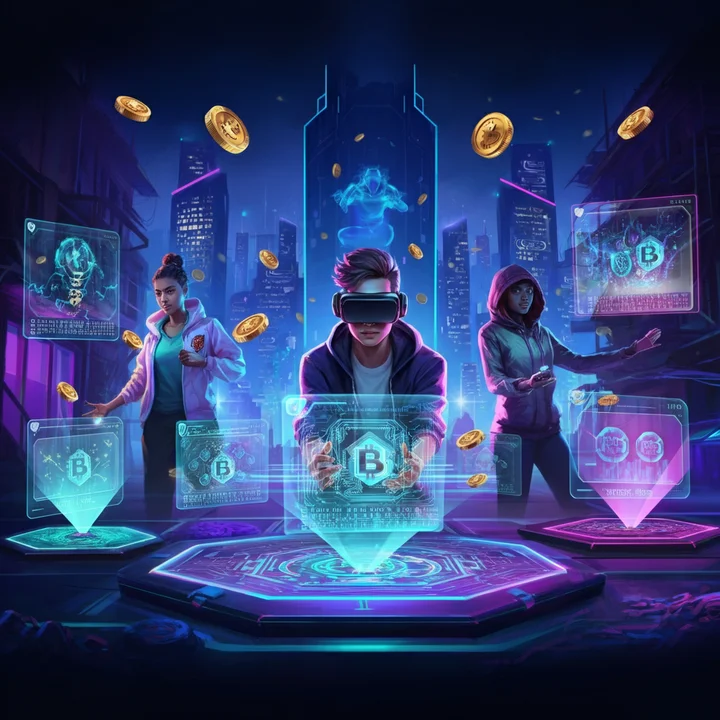The gaming industry is undergoing a monumental transformation, thanks to blockchain technology. With players increasingly seeking more value and transparency in their gaming experiences, blockchain is stepping in to deliver innovative solutions. This blog explores how blockchain technology is disrupting traditional gaming models, driving new innovations like play-to-earn and true ownership, and shaping the future of gaming.
Traditional Gaming Models and Their Limitations
For decades, traditional gaming has followed a centralized model. Developers control the in-game economy, digital assets, and overall game mechanics. While these models have delivered countless hours of entertainment, they come with significant drawbacks for players:
Limited Ownership: Digital assets, such as skins or weapons, are often tied to a specific game. Players invest time (and sometimes money) but lack true ownership of their purchases.
Closed Ecosystems: These games operate within a walled system. For example, your progress or assets in one game cannot be transferred to another.
Lack of Monetization: For most players, gaming is a sunk cost rather than a revenue-generating activity. Players pay to play without an avenue to earn real-world value from their time and skills.
Enter blockchain technology, which is seamlessly addressing these pain points and rewriting the gaming playbook.
What is Blockchain Gaming?
Blockchain gaming refers to the integration of blockchain technology into video games. Unlike traditional games, blockchain-based games leverage a decentralized, transparent ledger to manage in-game assets, transactions, and mechanics. Think of it as a way to give players more control and ownership over the gaming experience.
Key Features of Blockchain in Gaming
True Asset Ownership
Blockchain allows players to own in-game assets outright, often represented as Non-Fungible Tokens (NFTs). For example:
- A unique sword in an RPG becomes an NFT that the player truly owns.
- These assets can be sold, traded, or used across multiple games.
Play-to-Earn (P2E)
Unlike traditional games, where players pay to play, blockchain games introduce a "play-to-earn" model. Players earn real-world value (often in cryptocurrency) by completing in-game tasks or competing in tournaments.
Interoperability Across Games
Blockchain enables a more connected gaming experience. Developers can create interoperable assets, allowing players to use their NFTs in multiple games and platforms. This breaks down the silos of traditional gaming ecosystems.
With these innovations, blockchain is forging a path toward a more equitable, engaging gaming environment. But what does this look like in practice?
Popular Blockchain Games Leading the Charge
Several blockchain-based games are already redefining the gaming experience. Here are some notable examples:
Axie Infinity
One of the most popular blockchain games, Axie Infinity allows players to collect, breed, and fight digital creatures (Axies). Players earn Small Love Potion (SLP), a cryptocurrency that can be traded for real-world money.
Decentraland
A virtual world where players buy, sell, and develop virtual real estate. Property ownership is secured through NFTs, and in-game assets can be traded on the blockchain.
Gods Unchained
This strategy-based card game allows players to truly own their collectible cards. Built on Ethereum, the game offers a seamless P2E mechanic where users can trade or sell cards as NFTs.
By blending engaging gameplay with blockchain technology, these games highlight the vast potential of blockchain in the industry.
Benefits for Players and Developers
For Players
True Ownership: With blockchain, items players purchase or earn are securely owned as NFTs. These assets can be sold, traded, or held as investments.
Earning Potential: Through play-to-earn mechanics, players can translate their time and skills into cryptocurrencies, creating real-world value.
Transparency and Security: Blockchain ensures that all transactions and game mechanics are transparent, reducing fraud and enhancing fairness.
For Developers
New Revenue Streams: Blockchain games often introduce unique monetization models, such as earning royalties on NFT sales.
Player Retention: With tangible rewards and ownership, players are more likely to stay engaged in blockchain-based ecosystems.
Global Accessibility: Cryptocurrencies eliminate the need for traditional payment systems, enabling a truly global audience to participate.
Challenges in Blockchain Gaming
While blockchain gaming offers immense potential, it is not without its hurdles. Here are some key challenges to consider:
Scalability
Popular blockchains like Ethereum often face scalability issues, resulting in slow transaction speeds and high fees. Layer-2 solutions and alternative blockchains are emerging to address these limitations.
Adoption Rates
Blockchain gaming is still a niche. Convincing traditional gamers to shift to blockchain-based titles can be challenging due to high-entry barriers like cryptocurrency wallets or complex setups.
Regulation
The regulatory landscape around blockchain and cryptocurrencies remains uncertain in many countries. This can impact both developers and players who wish to operate or earn in certain jurisdictions.
Despite these challenges, there is reason for optimism. Blockchain technology is advancing rapidly, and solutions to scalability, user experience, and regulation are already in development.
The Future of Blockchain Gaming and GameFi
The future of gaming is likely to be heavily influenced by "GameFi," a term that combines gaming and decentralized finance (DeFi). Here’s what we predict:
DAO Governance
Games may implement Decentralized Autonomous Organizations (DAOs), where players can vote on game updates and decisions.
Deeper Interoperability
Imagine taking a sword in one RPG and using it in a completely different sci-fi FPS game. It’s closer than you think.
Mainstream Adoption
With companies like Ubisoft and Square Enix investing in blockchain, we could see a blockchain gaming title hit mainstream audiences sooner rather than later.
Empowering the Next Generation of Gaming
Blockchain gaming is not just a trend; it’s a revolution with the power to redefine the industry. It empowers players with true asset ownership, creates new ways to earn, and allows developers to build immersive, transparent ecosystems.
If you're a gamer, developer, or simply curious about the blockchain revolution, now is the time to explore its possibilities. After all, the games we play today are shaping the technology of tomorrow.

